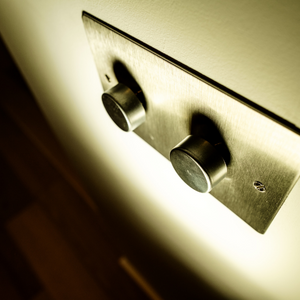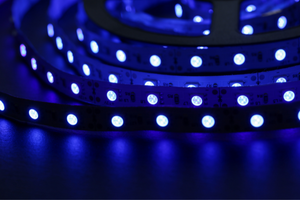LED Lighting FAQs
| Q | Can I dim LED lights? |
| A | It is possible to dim some LED lights, however, we only guarantee that our lights are dimmable if we specifically state this in the product description. |
| Q | Which wire is positive and which is negative? |
| A | If it's not clear which is positive and which is negative try connecting both ways around. You can't damage the lights as they are all protected against reverse polarity. |
| Q | How can I tell how bright an LED light will be? |
| A | LED lights cannot be compared directly with traditional incandescent bulbs (which are described as having an outputs in Watts) because they draw so little power in comparison. Their output is normally specified in 'effective lumens' and we have created a guide to allow you to compare this with the outputs of other types of incandescent bulbs. |
| Knowledge Centre Guides | Article Link |
|---|---|
LED Lighting Brightness GuideConventional lighting based upon incandescent filament bulbs is traditionally referred to as having an output in Watts. This allows us to have a good understanding of how bright it will be as there is an approximate correlation between power consumed by the bulb (Watts) and brightness. The problem with LEDs is that they use much, much less power than conventional bulbs for an equivalent light output, so using Watts as a measure of comparing brightness is no longer useful |
| VIDEO ARTICLES - YOU TUBE LINK |
|---|
| How to wire LED Lights & Use 2-Way switches |
Featured News Articles
| Thursday, 17 March 2022 | Craig  A product we have a significant number of enquries about is 12V dimmable LED lights, but these prove to be tricky to find & often problematic. Today we're going to try and explain some of the issues around dimmable LED lights. Posted in Help & Advice |
| Thursday, 27 January 2022 | Craig .png) We often get asked by customers to recommend an LED light - there are so many to choose from and lots of considerations when assessing which one would be most suitable. In this article, we'll take a look at some of the key things to consider when choosing the right LED light for your application. Posted in Help & Advice |
| Thursday, 25 November 2021 | Craig  In this article we will be explaining why you may find some 12V LED lights require drivers & others don't. Posted in Help & Advice |
Disclaimer - The information contained in these articles is provided in good faith and we do our best to ensure that it is accurate and up to date, however, we cannot be held responsible for any damage or loss arising from the use or mis-use of this information or from any errors or omissions. The installer is ultimately responsible for the safety of the system so if you are in any doubt, please consult a qualified electrician.
